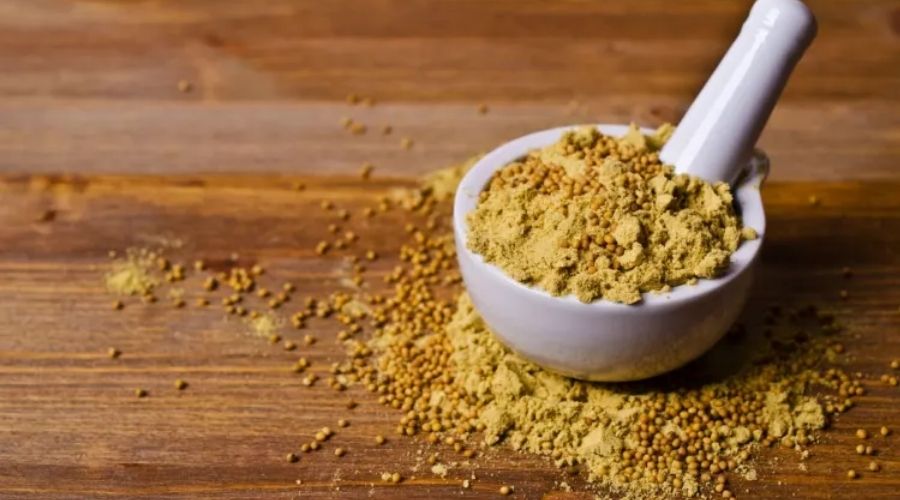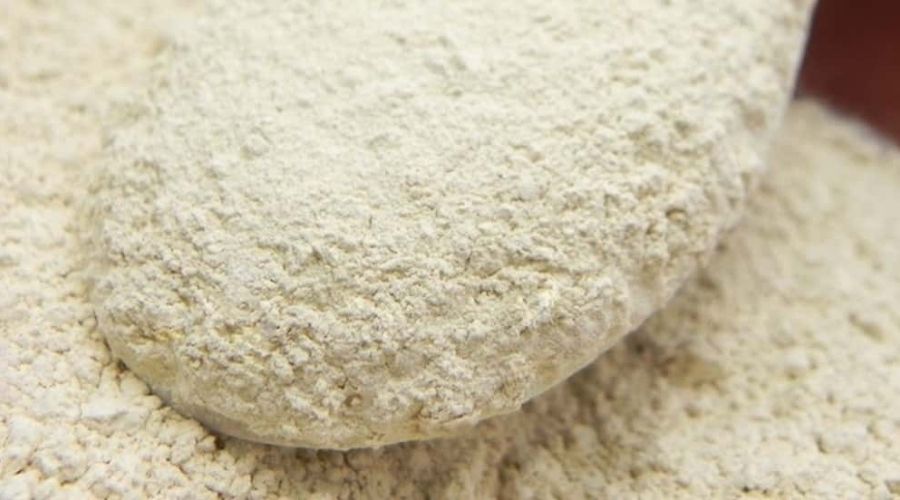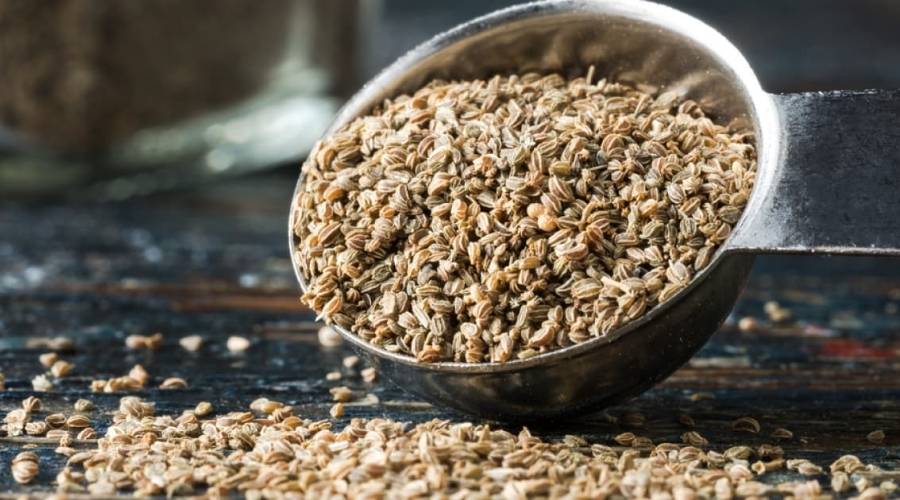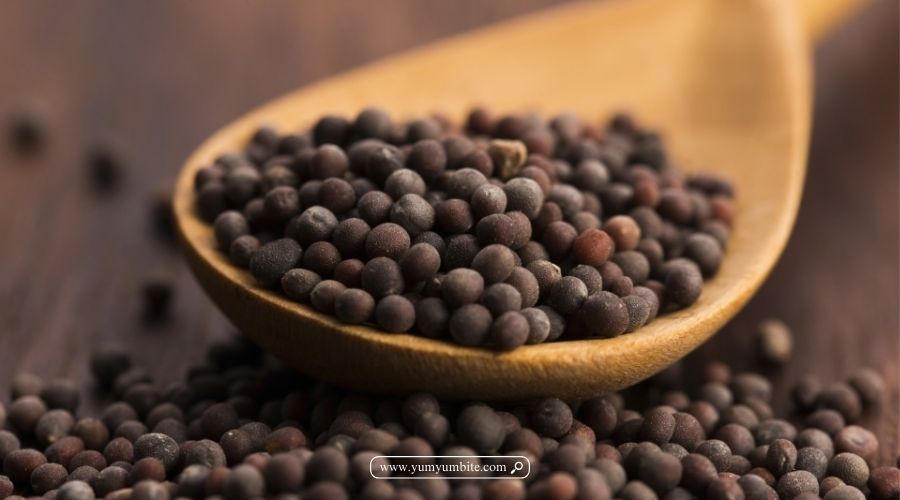Brown mustard seeds are a staple in many kitchens, prized for their pungent and spicy kick.
They play a crucial role in a variety of dishes, from Indian curries to pickles and marinades.
However, there are times when you might find yourself without brown mustard seeds or simply looking for alternatives to suit different dietary needs or flavor preferences.
Luckily, there are numerous substitutes that can stand in for brown mustard seeds, each bringing its own unique flavor profile and characteristics.
In this article, we explore over a dozen alternatives that can help you replicate the depth and complexity of brown mustard seeds in your recipes.
12+ Brown Mustard Seed Substitutes for Every Kitchen: Find the Perfect Alternative
Finding the right substitute for brown mustard seeds can transform your dishes without compromising on flavor.
Whether you opt for yellow mustard seeds, horseradish, or any of the other alternatives listed, each option offers a unique twist that can enhance your recipes.
By understanding the characteristics of these substitutes and how they compare to brown mustard seeds, you can make informed choices that align with your culinary needs.
Yellow Mustard Seeds
Yellow mustard seeds are a common substitute for brown mustard seeds due to their similar texture and flavor profile.
They are milder and slightly less pungent than brown mustard seeds, which makes them suitable for dishes where a less intense mustard flavor is acceptable.
Yellow mustard seeds work well in recipes like pickles, salad dressings, and sauces where the mustard flavor is more subtle.
When substituting yellow mustard seeds for brown, you may want to use a bit more to achieve the desired flavor intensity, or combine them with a pinch of turmeric to add some of the characteristic bite of brown mustard seeds.
Ground Mustard Powder

Ground mustard powder, made from mustard seeds that have been ground into a fine powder, can effectively replace brown mustard seeds in recipes.
It provides a similar flavor profile, though it is more concentrated and can be adjusted to taste.
This substitute is ideal for recipes where mustard seeds are cooked or incorporated into sauces, marinades, and dressings.
Use ground mustard powder in smaller amounts compared to whole mustard seeds, as its potency is greater. If you’re replacing brown mustard seeds with ground mustard powder, start with a small amount and adjust according to taste.
White Mustard Seeds
White mustard seeds, though milder than brown mustard seeds, can be used as a substitute in many recipes.
They offer a less pungent, more delicate flavor which can work well in dishes where the mustard flavor needs to be less aggressive.
White mustard seeds are suitable for recipes like pickles, mustard-based sauces, and salad dressings.
Since they are less spicy, you may need to adjust the amount used or combine them with other spices to better match the intensity of brown mustard seeds.
Mustard Seed Oil
Mustard seed oil, derived from the seeds of the mustard plant, can serve as a substitute for brown mustard seeds in recipes where you need the characteristic mustard flavor but not necessarily the texture. It works well in cooking applications such as sautéing, marinades, and dressings.
The oil imparts a rich, mustardy flavor, but because it is an oil, it won’t provide the same texture or crunch as whole mustard seeds.
When using mustard seed oil as a substitute, be mindful of the amount you use, as its flavor can be quite strong.
Start with a small amount and adjust according to taste.
Mustard Paste
Mustard paste, made from mustard seeds and water, offers a ready-to-use alternative to brown mustard seeds.
It provides a strong mustard flavor with a creamy texture that can enhance various dishes.
Ideal for recipes such as dressings, sauces, and marinades, mustard paste can be a convenient substitute in dishes where the texture of whole mustard seeds is less critical.
However, it is important to note that mustard paste is already mixed with other ingredients, so you might need to adjust the overall seasoning of your dish to account for this.
It is also generally less spicy than brown mustard seeds, so you may want to add a pinch of ground mustard powder to increase the heat if desired.
Horseradish

Horseradish, with its sharp and pungent flavor, can be used as an unconventional substitute for brown mustard seeds, especially in recipes where a strong, spicy kick is desired.
It’s particularly effective in sauces, dressings, and marinades where the intensity of flavor can complement other ingredients.
However, horseradish has a distinct taste that differs from mustard seeds, so it should be used cautiously to ensure it doesn’t overpower your dish.
When substituting horseradish, start with a small amount and adjust according to taste, keeping in mind that it will provide a different flavor profile.
Wasabi Powder
Wasabi powder, made from Japanese horseradish, can serve as a substitute for brown mustard seeds when you need a spicy, pungent flavor. It is well-suited for recipes like sauces, dressings, and marinades where a sharp bite is desirable.
Wasabi powder is more intense than mustard seeds, so it should be used sparingly.
To achieve a similar flavor intensity as brown mustard seeds, start with a small amount and adjust to taste.
Keep in mind that wasabi has a unique flavor that differs from mustard, so it might alter the overall taste of your dish.
Spicy Brown Mustard
Spicy brown mustard, which is made from brown mustard seeds, is a direct substitute for whole brown mustard seeds.
It offers the same spicy, tangy flavor and can be used in recipes where the seeds are mixed into sauces, dressings, or spreads.
Since spicy brown mustard has already been ground and mixed with vinegar and spices, it will contribute a similar taste to your dish but without the texture of whole seeds.
When using spicy brown mustard, you can use it in equal amounts to replace brown mustard seeds, but be sure to adjust any additional seasonings to balance the overall flavor of your recipe.
Curry Powder
Curry powder, which typically includes a blend of spices such as turmeric, cumin, and coriander, can be used as a substitute for brown mustard seeds when you want to add complexity and warmth to a dish.
While it doesn’t replicate the exact flavor of mustard seeds, curry powder can provide a similar depth and spiciness.
This substitute works well in curries, stews, and marinades.
However, because curry powder is a blend of various spices, it will impart a different flavor profile, so adjust the quantity based on your taste preferences and the other ingredients in your recipe.
Paprika with a Dash of Cayenne Pepper
Paprika combined with a dash of cayenne pepper can mimic the color and slight heat of brown mustard seeds, making it a useful substitute in recipes that require a bit of spice without overpowering the dish.
This combination works well in sauces, stews, and marinades.
To achieve the desired heat level, use sweet paprika as a base and add cayenne pepper incrementally, tasting as you go.
This mixture won’t replicate the exact mustard flavor but can provide a similar warmth and color.
Garlic Powder and Onion Powder
A blend of garlic powder and onion powder can serve as a substitute for brown mustard seeds in recipes where you want to add depth and complexity without the mustard flavor. This combination works well in dishes like roasted meats, vegetables, and savory bakes.
While it doesn’t replicate the sharpness of mustard seeds, it can enhance the overall flavor profile of your dish. Use equal parts garlic powder and onion powder and adjust according to taste, bearing in mind that this blend will alter the original flavor of your recipe.
Celery Seeds

Celery seeds, with their earthy and slightly bitter flavor, can be used as a substitute for brown mustard seeds in recipes where a mild, herbal note is acceptable.
They work particularly well in pickling recipes, salad dressings, and soups.
Celery seeds are not as pungent as mustard seeds, so you may need to use a bit more to achieve a similar intensity of flavor.
Additionally, because celery seeds have a different flavor profile, be sure to taste and adjust the seasoning of your dish accordingly.
How to Make Brown Mustard Seed Substitute at Home
If you find yourself in need of a brown mustard seed substitute and don’t have any on hand, you can easily create a flavorful alternative using common kitchen ingredients.
This recipe combines yellow mustard seeds with a few additional spices to mimic the pungency and complexity of brown mustard seeds.
The result is a versatile substitute that can be used in a variety of dishes, from pickles and sauces to stews and dressings.
Ingredients:
- 2 tablespoons yellow mustard seeds
- 1/2 teaspoon ground turmeric
- 1/4 teaspoon ground paprika
- 1/4 teaspoon ground black pepper
- 1/4 teaspoon cayenne pepper (optional, for added heat)
Instructions:
- Grind the Mustard Seeds: Place the yellow mustard seeds in a spice grinder or mortar and pestle. Grind them into a fine powder to match the texture of brown mustard seeds.
- Combine the Spices: In a small bowl, mix the ground yellow mustard seeds with the ground turmeric, paprika, black pepper, and cayenne pepper (if using). Stir well to ensure the spices are evenly distributed.
- Adjust to Taste: Taste the mixture and adjust the spices as needed. If you prefer a stronger mustard flavor, you can add a bit more ground mustard seeds or cayenne pepper.
- Store the Substitute: Transfer the prepared substitute to an airtight container and store it in a cool, dry place. It will keep for several months, though it’s best used within a few weeks for optimal flavor.
Creating a brown mustard seed substitute at home is both practical and convenient, especially when you’re in a pinch or looking to tailor the flavors to your preference.
This homemade blend offers a good approximation of the sharpness and depth of brown mustard seeds, with the flexibility to adjust the heat and flavor profile as needed.
By using common ingredients like yellow mustard seeds, turmeric, and paprika, you can maintain the integrity of your recipes and add a flavorful punch to your dishes.
Whether you’re preparing pickles, sauces, or stews, this simple substitute ensures you don’t miss out on that essential mustardy kick.
1. Can I use yellow mustard seeds as a substitute for brown mustard seeds?
Yes, yellow mustard seeds can be used as a substitute for brown mustard seeds.
They are milder in flavor and less pungent but can be combined with additional spices such as turmeric and paprika to replicate the intensity of brown mustard seeds.
This combination helps to mimic the color and spiciness of the original ingredient.
2. What is the best substitute for brown mustard seeds in a recipe that requires a strong mustard flavor?
For a strong mustard flavor, using ground mustard powder combined with a bit of cayenne pepper can be effective.
Mustard powder provides a potent mustard flavor, while cayenne pepper adds additional heat.
This mixture can closely resemble the intensity of brown mustard seeds and works well in sauces, dressings, and marinades.
3. Can I use horseradish as a substitute for brown mustard seeds?
Horseradish can be used as a substitute for brown mustard seeds when you need a sharp, spicy kick in your dish.
However, it has a different flavor profile and may not be suitable for all recipes.
Use horseradish sparingly and adjust to taste, especially in recipes where the flavor of mustard seeds is integral to the dish.
4. How can I substitute brown mustard seeds in pickling recipes?
For pickling recipes, yellow mustard seeds or a blend of mustard powder and vinegar can be used.
Yellow mustard seeds are a good alternative and provide a similar texture, while mustard powder mixed with vinegar can mimic the tangy flavor.
Adjust the quantities based on your taste preferences and the specific requirements of your pickling recipe.
5. Can I use wasabi powder as a substitute for brown mustard seeds?
Wasabi powder can be used as a substitute for brown mustard seeds when you want to add a spicy, pungent flavor. It’s more intense than mustard seeds, so use it sparingly.
Wasabi powder works well in sauces and dressings where a strong, sharp flavor is desired. Keep in mind that it will impart a distinct wasabi flavor, which may alter the overall taste of your dish.
References
- https://www.mccormick.com/articles/mccormick/about-mustard-seed
- https://veganpunks.com/mustard-seed-substitutes/
- https://theperfecttide.com/best-substitute-for-mustard-seeds/
- https://www.wikihow.com/Substitute-for-Mustard-Seed
- https://spiceitupp.com/substitute-for-mustard-seeds/


